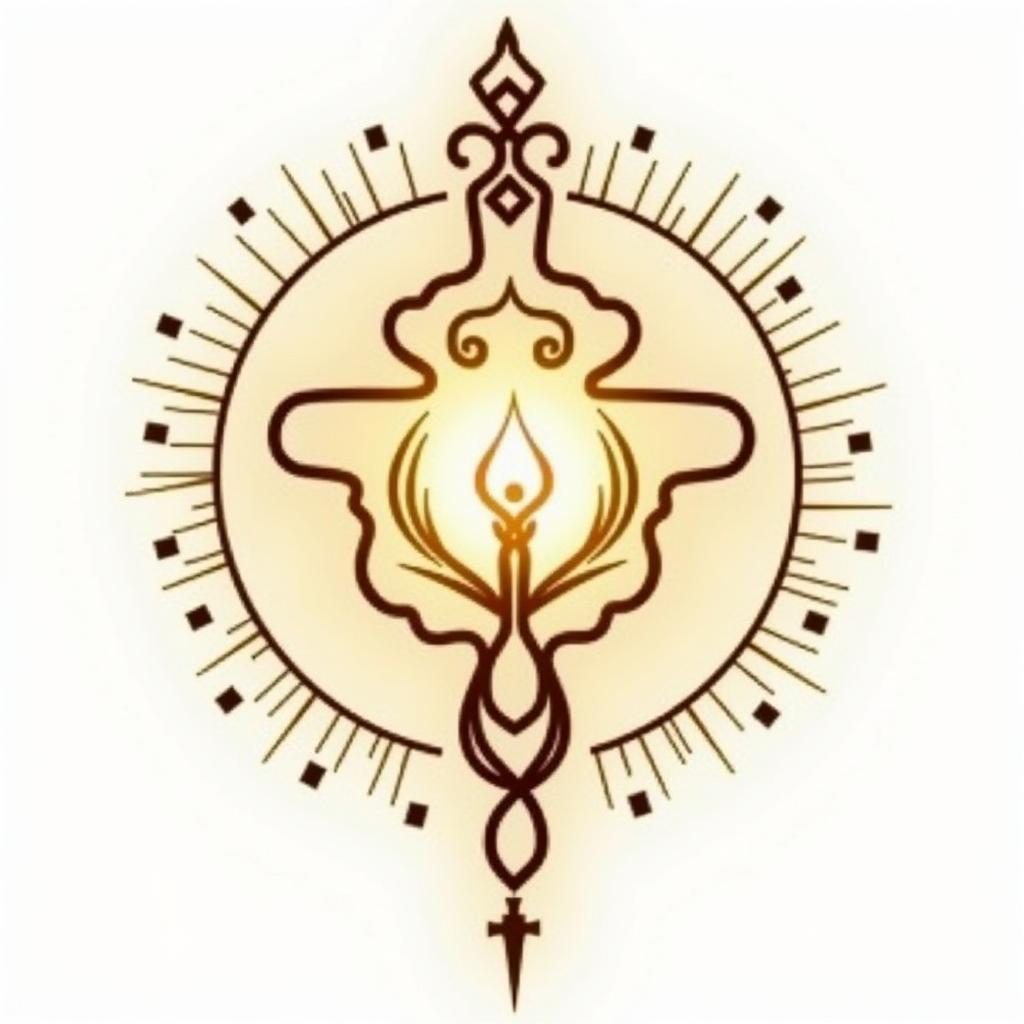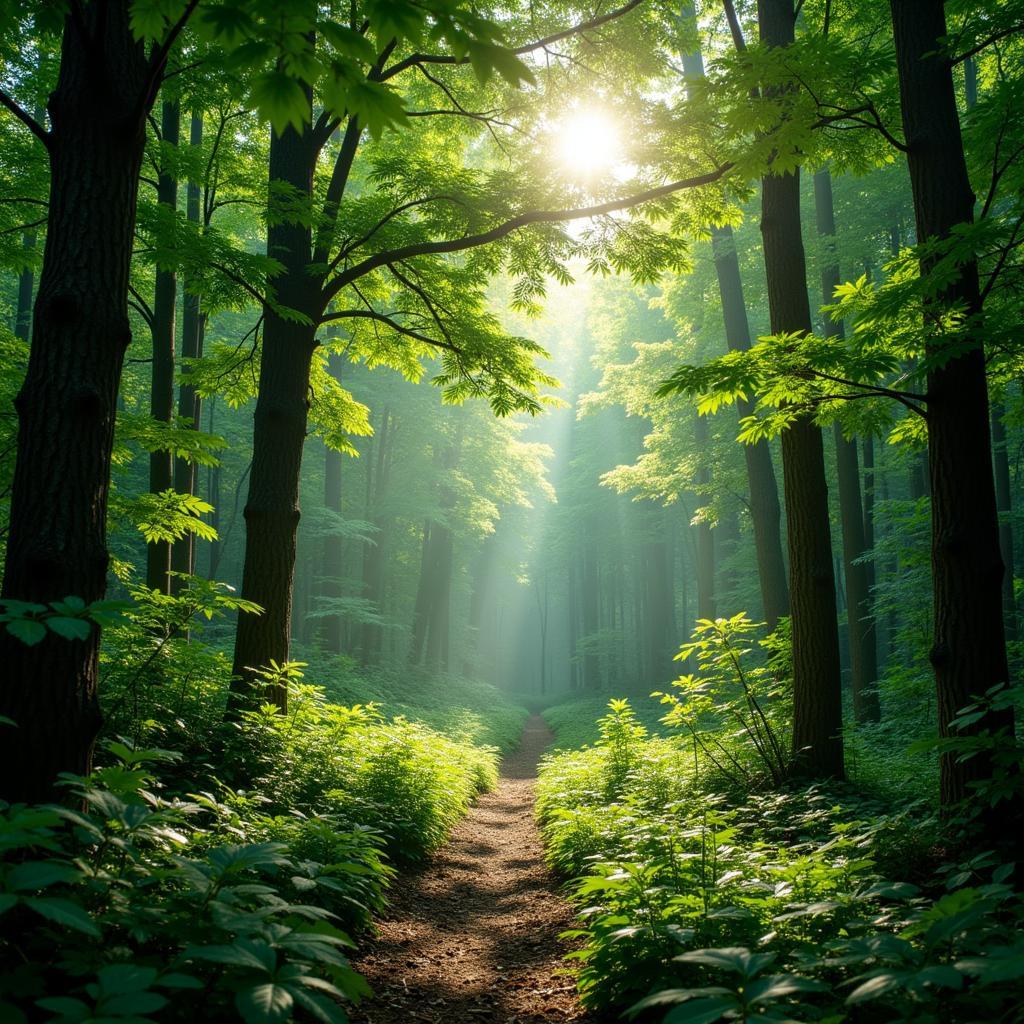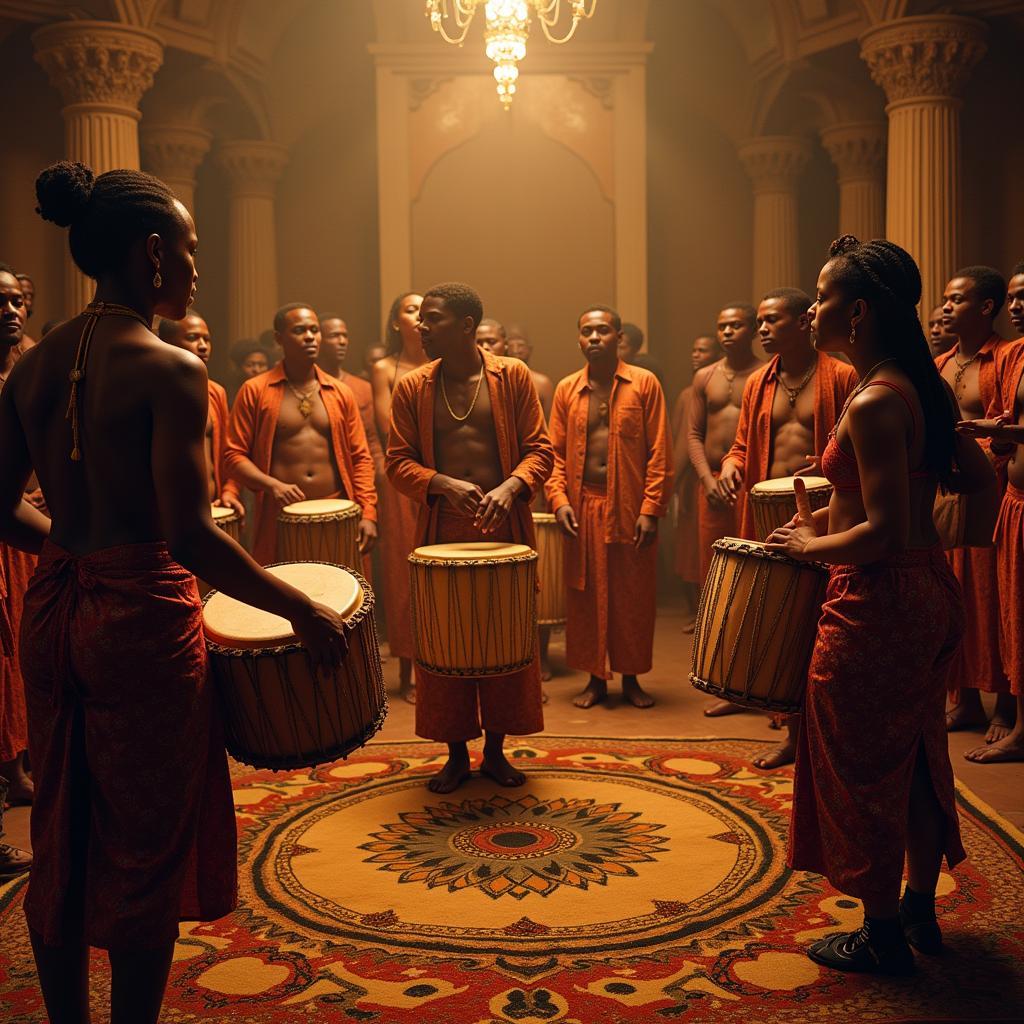The term “Ase” – often encountered as “Ashe” or “Asé” – holds profound spiritual significance, particularly in West African religions and their diaspora traditions like Santeria, Candomblé, and Vodun. While its pronunciation might seem simple, delving into the ase spiritual meaning unveils a complex concept deeply interwoven with beliefs about creation, power, and divine energy.
 Ase symbol representing spiritual energy
Ase symbol representing spiritual energy
Unpacking the Ase Spiritual Meaning
Ase, in its essence, signifies the life force, the vital energy that flows through all things in the universe – from humans and nature to deities and spirits. It’s the power to make things happen, to bring about change, and to manifest one’s destiny.
Imagine a river, its current pulsing with the energy of its journey from the mountains to the sea. That powerful force, that ability to shape and move, is akin to the concept of Ase.
 Manifestation of ase in the natural world
Manifestation of ase in the natural world
The Pronunciation of Ase
While the spelling might vary, the pronunciation remains relatively consistent across different traditions:
- Ah-sheh: This is the most common pronunciation, with the emphasis placed on the first syllable.
- Ah-say: This pronunciation, with a slight variation in the second syllable, is also prevalent in some regions and lineages.
It’s important to remember that pronunciation can differ based on specific cultural contexts and dialects. The key is to approach the term with respect and understanding for its cultural weight.
Ase in Practice and Belief
Ase is not merely a philosophical idea; it’s an active, dynamic force. In West African traditions, individuals strive to cultivate and harness Ase through rituals, offerings, prayers, and ethical living.
- Offerings and Sacrifices: These acts are seen as a way to nourish and replenish the Ase of deities, spirits, and ancestors.
- Music and Dance: Rhythmic movements and songs are powerful channels for invoking and directing Ase.
- Spoken Word and Prayers: Words hold immense power, and specific invocations and pronouncements are used to activate and direct Ase.
 Practitioners invoking Ase through ritual
Practitioners invoking Ase through ritual
The Significance of Ase
The concept of Ase has profound implications for understanding the worldview of these traditions:
- Interconnectedness: Ase highlights the interconnectedness of all things. Since everything possesses Ase, there’s an understanding of inherent connection and interdependence.
- Balance and Harmony: Just as a river needs to flow freely to maintain its power, Ase requires balance and harmony to thrive.
- Personal Responsibility: Individuals have a responsibility to cultivate and use their Ase for good – for themselves, their communities, and the world around them.
Conclusion
Ase is more than just a word; it’s a potent concept that encapsulates the essence of life, power, and spirituality in West African traditions. Understanding Ase provides a glimpse into a rich tapestry of beliefs, practices, and worldviews that continue to resonate with people across the globe.
FAQs
1. What is the opposite of Ase?
While there isn’t a direct opposite term, the absence or blockage of Ase can manifest as misfortune, illness, or stagnation.
2. Can anyone have Ase?
Yes, all living beings are believed to possess Ase. However, its strength and potency can vary depending on factors like spiritual practice, lineage, and actions.
3. How can I increase my Ase?
Cultivating Ase is an ongoing process that involves ethical living, connecting with nature, honoring ancestors, and engaging in spiritual practices.
4. Is Ase similar to other concepts like “Chi” or “Prana”?
While each culture has its own terminology, Ase shares similarities with concepts like “Chi” in Chinese tradition and “Prana” in Hinduism, all pointing to a universal life force energy.
5. Can you give an example of Ase in everyday life?
The feeling of vitality and inspiration when creating art, the energy that fuels a community gathering, or the power of a spoken word to uplift or harm are all examples of Ase in action.
For further exploration, consider reading more about ashe or ase in different cultural contexts.
Need More Information?
Contact us at Phone Number: 0369020373, Email: aseanmediadirectory@gmail.com, or visit us at Thôn Ngọc Liễn, Hiệp Hòa, Bắc Giang, Việt Nam. Our customer service team is available 24/7 to assist you.

